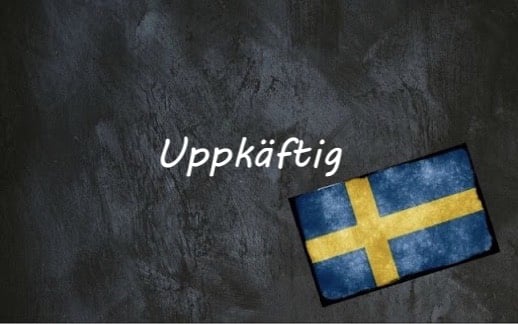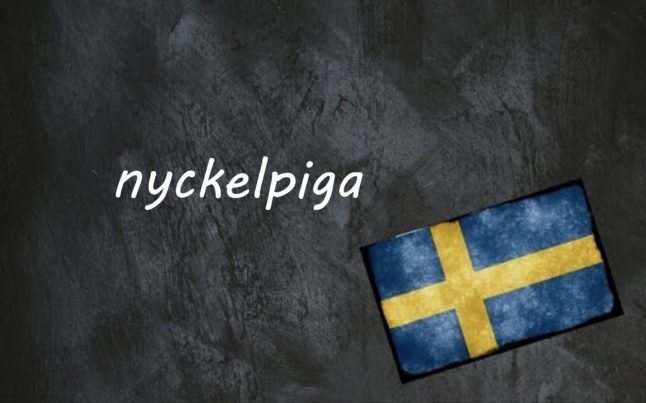Uppkäftig consists of two words, upp (‘up’) + käftig (‘mouthy’ or ‘lippy’, but käft often means the jaws of an animal).
Someone who defiantly opposes another despite having a lower position in a hierarchy or having lesser knowledge than that other is uppkäftig. Traditionally this word was used about young people in relation to older people, but today it has also taken on a more general meaning of someone having a bad attitude.
Uppkäftighet (the noun), like any word for a bad attitude in most languages, has a lot of synonyms, and some of them are quite similar, like uppstudsig (‘up’ + ‘bouncy’), or uppnosig (‘up’ + ‘nosy’), while some of them are not, like kaxig. Kaxig comes from kaxe, which essentially means a man out of the ordinary, usually a really big man, and so it is not very similar to uppkäftig, but it appears in a phrase with upp: kaxa inte upp dig. In the phrase kaxa has roughly the same meaning as uppkäftig, being irreverent towards those who are above you. Roughly, it means ‘Don’t give me attitude’.
This is seen in the related phrase att käfta emot meaning ‘to talk back’ or literally ‘to jaw back’, which is used to tell someone not to be uppkäftig, or to ‘not talk back’: Käfta inte emot!
Wikipedia gives a more modern definition of the usage of uppkäftig, one which applies to any type of situation where someone is giving you attitude. It defines uppkäftig as ‘provoking through disrespectful talk; who is talking back’. Today you can basically use uppkäftig to describe anyone who is giving you attitude, even though that person is not below you in rank or knows less than you about a certain topic.
But you should know that calling someone uppkäftig is quite a bit different from saying that someone is respektlös (‘disrepectful’ or literally ‘without respect’), it is more of an invective. This is probably due to käftig, since it is both close to käft, implying an animal jaw, which also is used to say ‘shut up’.
So if you want to tell someone off for giving you lip, you should probably just ask them if they can tala lite mer respektfullt (‘speak a bit more respectfully’).
Example sentences:
Gud, va du är uppkäftig!
My God, you’re lippy!
Sluta bete dig som en uppkäftig tonåring!
Stop acting like a lippy teenager!
Villa, Volvo, Vovve: The Local’s Word Guide to Swedish Life, written by The Local’s journalists, is now available to order. Head to lysforlag.com/vvv to read more about it. It is also possible to buy your copy from Amazon US, Amazon UK, Bokus or Adlibris.



 Please whitelist us to continue reading.
Please whitelist us to continue reading.
Member comments